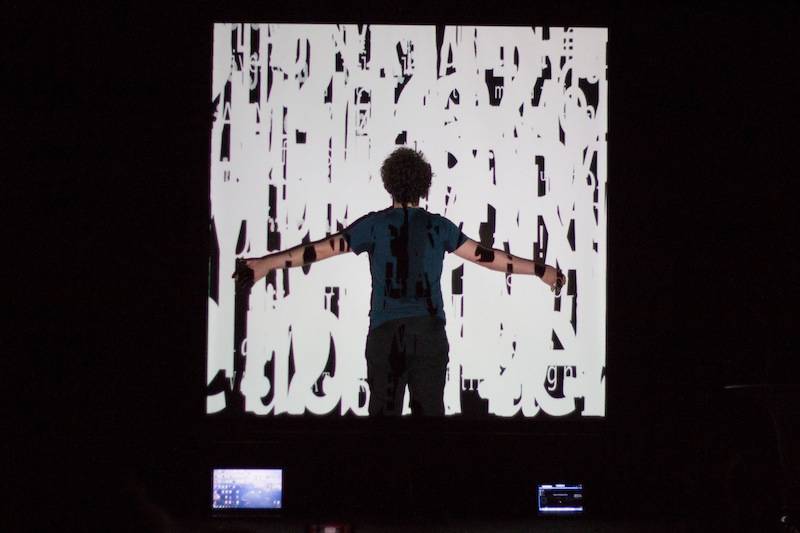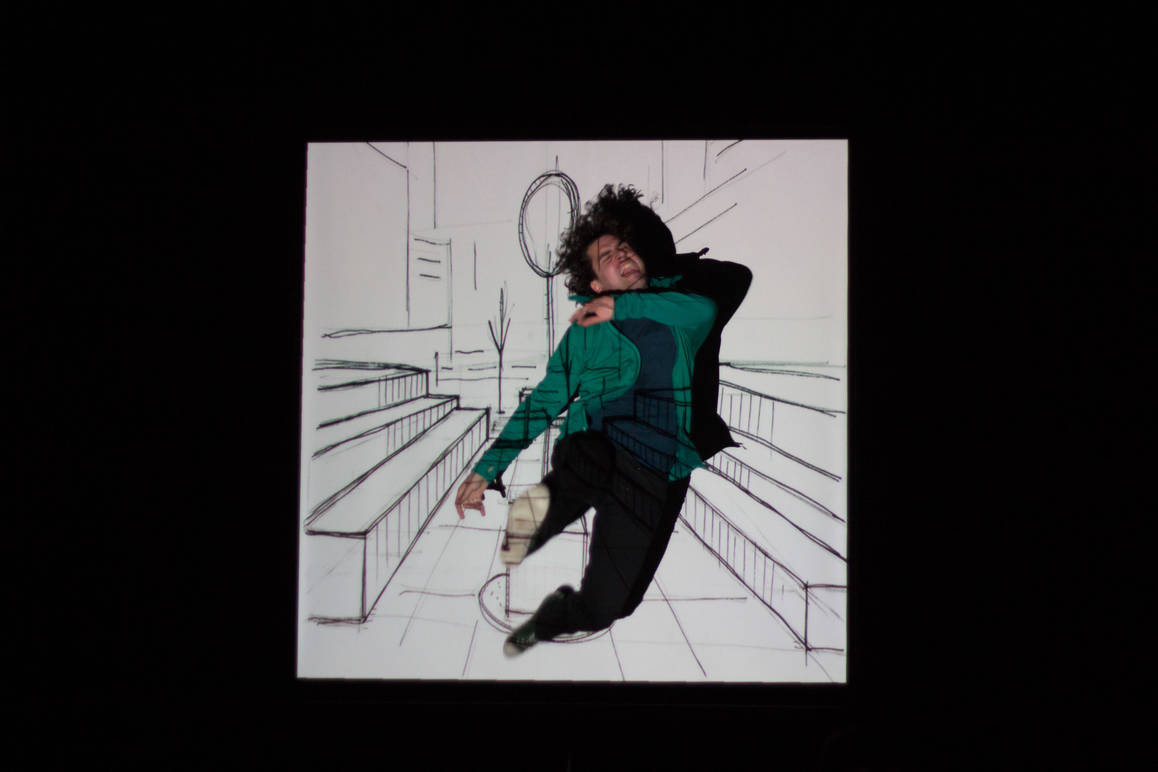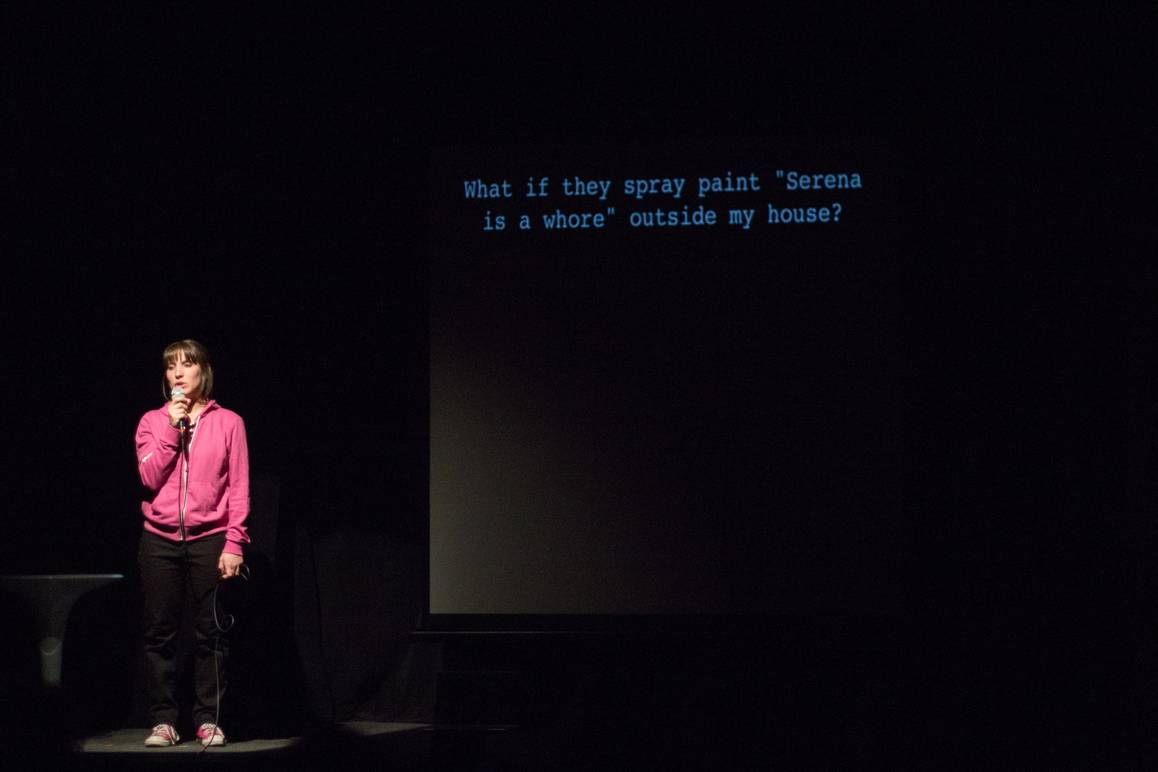WEBulli: Tackling the Issue of Cyberbullying with Theater
“Bullying, especially in schools, has always existed, this is nothing new, and adolescents have this inherent need to be noticed. But how has this changed with the rise of social networks and new technologies?
Once upon a time bullied kids risked beatings at school or to be excluded from the group of the "coolest" ones and in class they were teased or given mean nicknames that stuck, at times, for the longest time. Secret journals, thoughts written on notebooks and notes passed from hand to hand collected the most hidden thoughts.
Today physical 'slaps' have become intangible; they have been replaced by embarrassing videos posted online, anonymous messages, stolen photos and fake identities. Physically they hurt less, but how much do they hurt morally? Today people's most intimate confessions and images are posted on the web without any kind of filter, they are accessible to anybody and often there is no awareness of the consequences that some posts may have.”
The show WEBulli, was just presented in New York during the theater festival In Scena! It investigates the current phenomena of cyberbullying and sexting, in other words, acts of bullying and harassment and the exchange of explicit content of a sexual nature made through the new digital media. Two actors, Serena Facchini and Ermanno Nardi, who happen to also be the writers of the play, address the issue with an irreverent language, that is light and poetic at the same time.
WEBulli brings theater and video art together, it tells a story alternating history with personal anecdotes and bringing on stage an exaggeration that makes you smile but that gently brings out something tragic. We had a chance to ask Serena Facchini and Ermanno Nardi a few questions upon their return to Italy.
You act in the show but you also created it, how did you get the idea of WEBulli?
The show WEBulli is a piece of a bigger puzzle; a major project centered on the prevention of the cyberbullying and sexting phenomena among adolescents in middle and high school in the region of Lombardia. Hence the idea to present this issue in a show, starting from the world of social networks how we change our identity for them, and how some of use experience these dramatic developments. We try to weave a light and comic language to a more poetic and dramatic one. We organized some labs with the students and that gave us a lot of material to work with; including the music, the language and even the stories.
How did you pick the title?
The title WEBulli come from putting together the words WEB and Bulli (Bully in English); a new term used to indicate cyberbullies, today's new virtual bullies.
You use humor and lightness to talk about something tragic, how important is it to tackle the issue of cyberbullying?
Unfortunately the phenomenon of cyberbullying is becoming increasingly potent in Italy and abroad. We believe it is very important to talk about this subject but that's not all. It's important and vital to raise awareness among young people and to educate them to proper use of their image online.Today's social networks are becoming the personal and intimate journals of yesterday, often there is no understanding that all that is posted online becomes public knowledge.
How important is theater in educating kids?
We think that theater is a great way to talk about such an emotionally compelling topic. We tell a story that could be the story of anybody, of my friend or of your friend. It's a story that can be familiar to us all. In this way we have opened a window of opportunity, and it is the opportunity to say: “this is not fiction, this is something that can happen to all of us.” And also: “We don't have to be bullies to play the game. If we like something, if we post something or we share something else we are playing the game, and so we all are responsible.”
How did the audience react to the show here in the US?
We got an amazing reaction. Although the show was in Italian with English subtitles, the audience was very attentive and they reacted to both the lightest and most comic moments and the most dramatic ones. We often debate with the kids in Italian schools and we did the same here after our shows at the Staten Island College and at the Bernie Wohl Centre. Kids here and there have the same issues and talking about this is essential both here and there.








































i-Italy
Facebook
Google+
This work may not be reproduced, in whole or in part, without prior written permission.
Questo lavoro non può essere riprodotto, in tutto o in parte, senza permesso scritto.